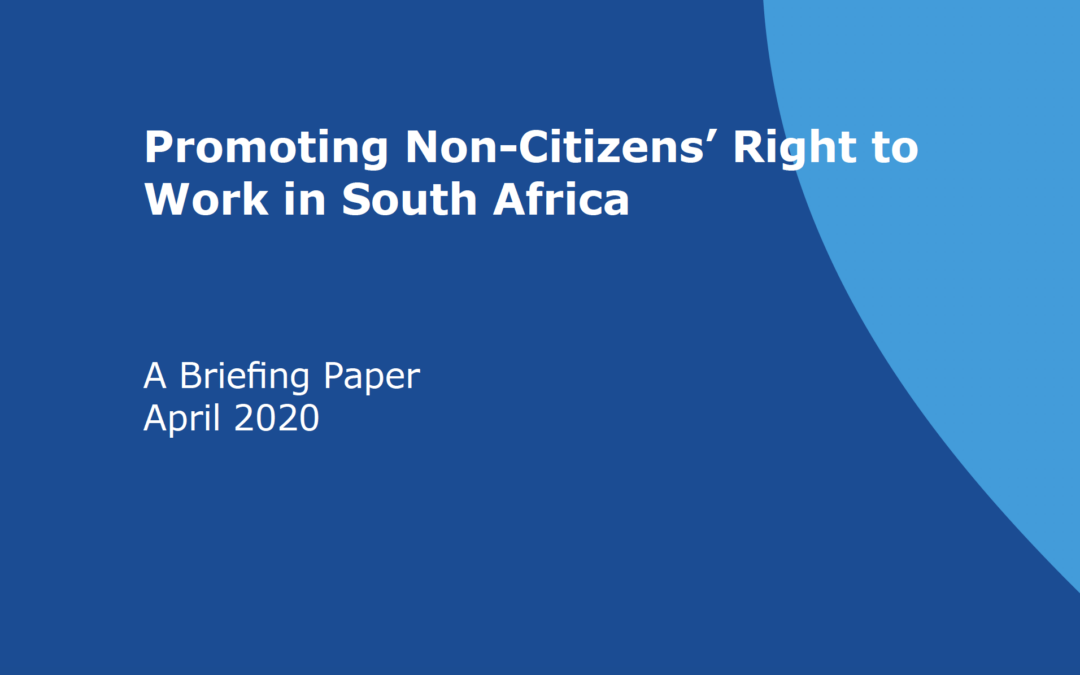
Apr 6, 2020 | Advocacy, Analysis briefs, News
The briefing paper is published today in the context of significant uncertainty and distress experienced by migrant workers, refugees, asylum seekers, stateless people and other non-citizens in South Africa as a result of the COVID-19 pandemic and the measures that the authorities have taken with the stated aim of responding to it.
“All people residing in South Africa have the right to work and in earn a living in the country under international human rights law. The Government of South Africa should guard against laws, policies and public statements that discriminate against non-citizens especially during the public health emergency caused by COVID-19. Lockdown regulations and directions must be conceived and implemented in a way that fully enables all migrant workers performing essential services, including informal traders, waste reclaimers and shop owners to operate on an equal basis with South African citizens,” said Arnold Tsunga, the ICJ’s Africa Director.
The ICJ has previously condemned discriminatory statements made about non-citizen owners of “spaza shops” made by Minister Khumbudzo Ntshavheni in the context of COVID-19, and called on President Ramaphosa to publically repudiate these statements.
The briefing paper, which was produced in consultation with domestic, South African human rights organizations: the Socio-Economic Rights Institute and Lawyers for Human Rights, sets out the following clear principles of international human rights law regarding non-citizens’ right to work in South Africa:
- Everyone, regardless of citizenship status, has the right to work in South Africa under, among others, the International Convention on Economic, Social and Cultural Rights and the African Charter on Human and People’s Rights;
- This right to work, which is binding on South Africa, adds to the government’s constitutional obligations in terms of rights at work or the “right to fair labour practices”;
- The right to work protects both formal and informal workers, including non-citizens, in accordance with ILO Recommendation 204 and the General Comments of the Committee on Economic, Social and Cultural Rights;
- The right to work applies to non-citizens irrespective of their documentary status in South Africa;
- No restrictions on the “core” obligations placed on states in terms of the right to work, as set out by the Committee on Economic, Social and Cultural Rights, are permissible;
- Restrictions or limitations on the right to work are permissible if they are set out in clearly in legislation, in pursuit of a legitimate objective, and are reasonable and proportionate taking into account the need to protect human dignity consistently with international human rights law and the Constitution;
- Any restrictions on non-citizens’ rights to work should be administrative (such as requiring permits or documentation), rather than substantive or categorical, otherwise they are likely to amount to prohibited forms of discrimination in terms of international and South African law; and
- Any administrative process designed by the State in this regard must be reasonable and proportionate and geared towards facilitating non-citizens ability to work in SA instead of limiting them.
Contact:
Tim Fish Hodgson, ICJ Legal Adviser, e: tim.hodgson(a)icj.org ; c: +2782871990
Shaazia Ebrahim, ICJ Media Officer, e: shaazia.ebrahim(a)icj.org ; c: +27716706719
Download
South Africa-Non Citizens Right to Work-Advocacy-Analysis Brief-2020-ENG (full paper in PDF)
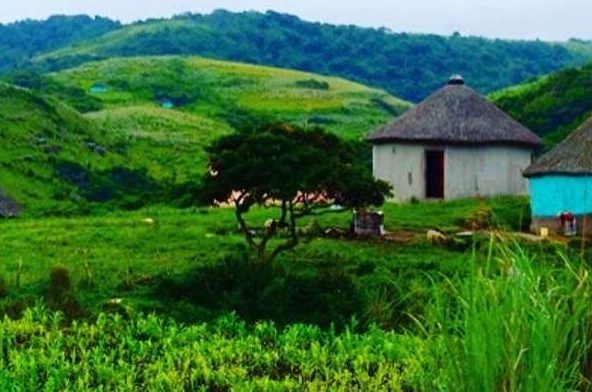
Mar 25, 2020 | News
The ICJ today called on the South African government to take urgent and immediate measures to ensure the full protection human rights, including economic, social and cultural rights, in the context of the COVID 19 epidemic.
The call comes as South Africa’s 21-day nationwide lockdown is poised to commence tomorrow, 26 March 2020. As it stands the human rights of the majority of South African residents are under serious threat.
“The ICJ is calling on the South African government to take effective measures ensure that addressing one human rights crisis does need lead to new human rights pressures” said Arnold Tsunga, Director of or the ICJ Africa Programme.
“We therefore call on the authorities to take three urgent steps: 1) Declare a moratorium on all evictions; 2) Ensure emergency provision of water to all; and 3) publically repudiate xenophobic statements made by Minister Khumbudzo Ntshavheni and affirm non-citizens rights to work”.
- Declaration of a moratorium on all evictions:
In the context of COVID-19, evictions are particularly dangerous and life-threatening. Evictions risk the further spread of COVID-19 and make it impossible to stay at home as the World Health Organization has advised.
The UN Special Rapporteur on the Right to Housing, has called for a global ban on evictions worldwide, stressing that: “The logical extension of a logical stay at home policy is a global ban on evictions. There must be no evictions of anyone, anywhere, for any reason. Simply put: a global ban on evictions will save lives”. In South Africa, local social movements and human rights organizations have called for a “moratorium” on evictions, as has Abahlali BaseMjondolo a movement of tens of thousands of “shack dwellers” across the country.
The ICJ calls on President Ramaphosa to declare a moratorium on evictions immediately before the commencement of the nationwide lockdown. South Africa must do so to meet its international legal obligations to protect the rights to housing and health.
- Provision of emergency access to water before the lockdown commences:
Many people in South Africa live in informal settlements and rural settings in which access to water, sanitation and basic services are inadequate or inconsistent. The simple instruction of washing one’s hands to prevent the spread of the virus is extremely difficult, if not impossible, for many.
The President announced on 23 March that “emergency water supplies” would be provided in “informal settlements and rural areas”. However, reports from around the country suggest that with lockdown beginning tomorrow many major informal settlements, including Khayelitsha in Cape Town, still do not have sufficient access to such emergency water.
The ICJ calls on President Ramaphosa to ensure that provision is made for all South Africans to have access to basic services, including water, before the commencement of national lockdown. South Africa must do so to meet its international legal obligations to protect the right to water.
- Protecting the right to work of “everyone” including non-citizens:
On 24 March 2020 speaking on national television, Minister of Small Business and Development in South Africa Khumbudzo Ntshavheni said that only spaza shops “owned by South Africans and managed and run by South Africans” will be allowed to continue operating during nationwide-lockdown, ostensibly to ensure the quality of goods and food.
This statement is discriminatory and in violation of South Africa’s commitments in terms of its own Constitution and international human rights law, to ensure non-discrimination and equal protection of the law. It risks a resurgence of existing xenophobic sentiment at a time of crisis which South Africa can ill afford and threatens the livelihood of foreign nationals.
The ICJ calls on President Ramaphosa to withdraw the statement immediately and reaffirm the internationally recognized right to equality of non-citizens including their right to work.
Contact:
Tim Fish Hodgson, ICJ Legal Adviser, e: tim.hodgson(a)icj.org ; c: +2782871990
Shaazia Ebrahim, ICJ Media Officer, e: shaazia.ebrahim(a)icj.org ; c: +27716706719
Background:
The global Covid-19 pandemic has led South African president Cyril Ramaphosa to announce a 21-day nationwide lockdown which will be effective on 26 March at midnight. This follows on from South Africa’s declaration of a “national disaster” on 15 March and the publication of disaster regulations governing the disaster response.
Global consensus on best practice to combat COVID-19, as recommended by the World Health Organization, is for people to stay at home, maintain social distance and intensify hygiene measures including through frequent washing of hands. However, South Africa has well-documented and extremely high levels of poverty and inequality. A number of problems in complying with global best practice in response to COVID-19.
The disaster regulations require that measures taken to combat COVID-19 are implemented “as far as possible, without affecting service delivery in relation to the realisation of the rights” including the rights to housing and basic services, healthcare, social security and education.
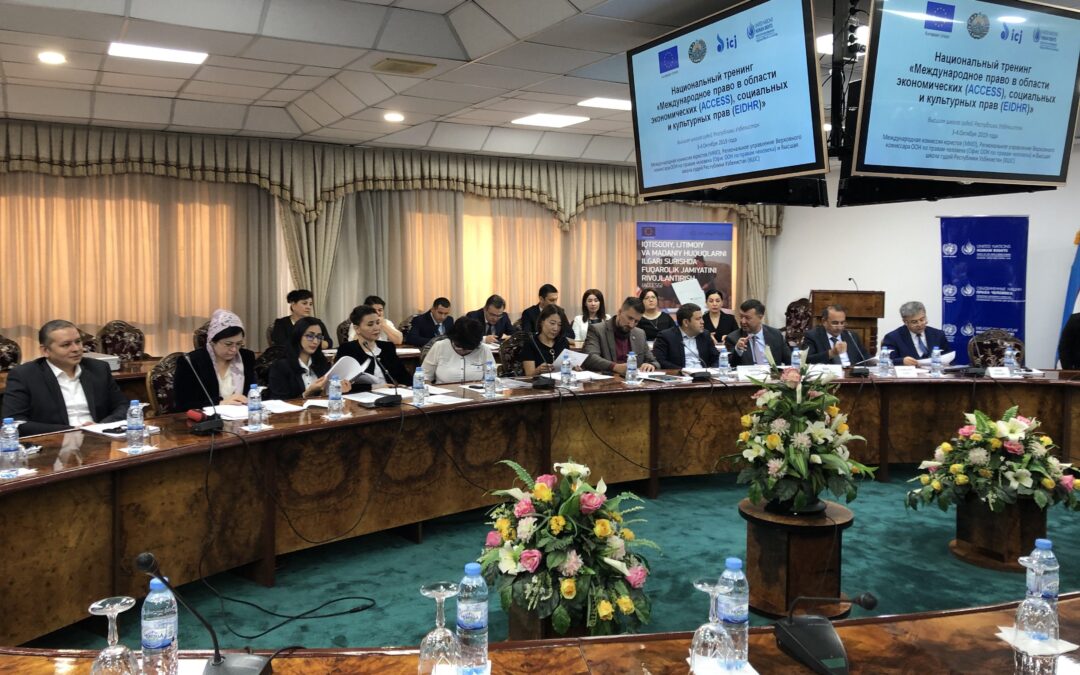
Oct 3, 2019 | News
Today, the ICJ, the Regional office of the UN High Commissioner for Human Rights (OHCHR) for Central Asia and the High School of Judges of the Republic of Uzbekistan (HSJ) are organizing a national training on “International law on economic, social and cultural (ESC) rights.”
This two-day training is one of series of similar trainings, held in 2019 and 2020, that will address international law on issues including rights to healthcare, education, housing and rights in the workplace.
The training sessions aim to build the capacity of judges, lawyers, prosecutors, legal academics and other representatives of the civil society on international standards on ESC rights, to share best practices on compliance by States with their international obligations, including through judicial practices related to ensuring access to justice for ESC rights.
The training sessions ensure diversity and networking opportunities between members of the judiciary and others legal practitioners.
Each training consists of four modules on (1) introduction to international law on ESC rights; (2) International obligations concerning access to justice and remedies for ESC rights in national courts; comparative examples of good practice; (3) Children’s ESC rights and (4) Women’s ESC rights.
Head of the EU Delegation in Uzbekistan Ambassador Eduards Stiprais pointed out, “Uzbekistan is taking serious international commitments to align its legislation with international norms and practices. Under Uzbekistan Constitution, these international commitments take precedence over the national law. They will reinforce the rights of Uzbekistan citizens and international investors. This will boost the economic and social development of the nation, but it will also put high demands to the judiciary system to ensure that its decisions fully comply with international norms and offer remedies against all breaches.”
Ryszard Komenda, OHCHR Regional Representative for Central Asia, noted that “Uzbekistan since 1995 has committed itself to ensure implementation of provisions of the International Covenant on Economic, Social and Cultural Rights (ICESCR).
To date, Uzbekistan has already submitted three national periodic reports on implementation of the Covenant. The third national report was submitted in June 2019 and will be reviewed after 2020.
The UN Committee, tasked to oversee states’ compliance with their commitments under the ICESCR, has issued a number of recommendations for Uzbekistan.
Many of them highlight the instrumental role of training on economic, social and cultural rights as a means to build capacity of state actors to respect, protect and fulfil human rights.
Only through comprehensive understanding of the content of each right and realizing that all human rights are interrelated, indivisible and interdependent, it will be possible to guarantee holistic implementation of existing international human rights obligations of Uzbekistan”.
“These trainings are an important part of capacity building which is essential in ensuring the effectiveness of the reform of the judiciary,” said Róisín Pillay, Europe and Central Asia Programme Director of the ICJ.
“It is vital to build capacity of different actors of the justice system: members of the judiciary, law enforcement agencies, lawyers and civil society, to ensure a greater impact. Together with the OHCHR and the Supreme School of Judges and the great support of the EU Delegation in Uzbekistan, we could provide the space necessary for learning about international human rights law and, in particular, its various aspects related to economic, social and cultural rights,” she added.
The Director of the Higher School of Judges briefly spoke about the activities of the Supreme School of Judges (SSJ), and also noted the recent arrival of the UN Special Rapporteur on the independence of judges and lawyers, Mr. Diego Garcia Sayan, who paid special attention to the establishment of the SSJ, along with other judiciary reforms in Uzbekistan.
“The international seminar in which we have gathered today gives us the opportunity to establish networking with other organizations and bodies through promotion of economic, social and cultural rights. The exchange of ideas and experience in the necessity of the modern world, for the mutual development of the judiciary, education and the society as such,” said Khodji-Murod Isakov, the Director of the Higher School of Judges.
The national trainings are organized in the framework of project “Advancing Civil Society in Promoting ESCR Standards (ACCESS)” funded by EU through the European Instrument for Democracy and Human Rights (EIDHR).
There will be two more similar trainings in 2020 and all trainings materials at the end will be translated into Russian and Uzbek languages for further reference and use. Moreover, the trainings materials will be publicly available in 2020 for wider outreach and promotion of international law and ESC rights standards.
Contact
Dilfuza Kurolova, ICJ Legal consultant, t: +998 90 9050099 ; e: dilfuza.kurolova(a)icj.org
Download
Uzbekistan-National Training ESCR-News-2019-ENG (full story in PDF)
International law on economic, social and cultural (ESC) rights (4 training modules in Russian – PDF).
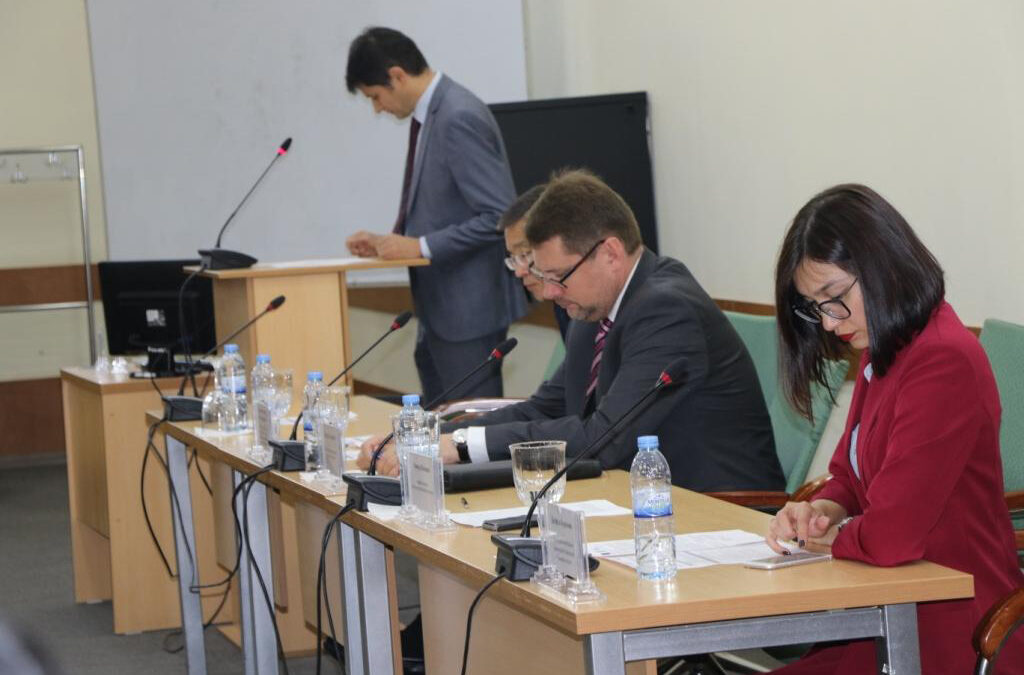
Sep 18, 2018 | News
Today, the ICJ and the Tashkent State University of Law (TSUL) are launching a series of expert discussions on economic, social and cultural rights (ESC) to advance civil society in promoting these rights in Uzbekistan.
These expert discussions are part of the project “Access to justice in economic, social and cultural rights project (ACCESS)” supported by the European Union.
They aimed to increase awareness about the implementation of international law and standards on ESC rights before national courts, to facilitate access to justice for ESC rights and effective use of international human rights law for ESC rights.
Every two months, they will bring together lawyers, advocates, specialists, academia and law students via interactive discussions, research papers, peer review articles and policy papers. Selected papers will be published by the end of 2019.
“The cooperation of our university with the ICJ and with support of the European Union opens big perspectives for all of us,” said Esemurat Kaniyazov, Rector of TSUL and Deputy minister of justice of the Republic of Uzbekistan.
“Tashkent State University of Law (TSUL) is happy to start cooperation with the International Commission of Jurists (ICJ), which will have an impact into further increase of awareness level of the society about implementation of the international legal norms and standards in economic, social and cultural rights in domestic courts, access to justice from point of view of economic, social and cultural rights and also effective application of international human rights law for protection of these rights,” he added.
“So, planned cooperation will affect further progress in conducting research of the normative and legal base of Uzbekistan in economic, social and cultural tights and follow the obligations of the international human rights law,” Kaniyazov said.
“These discussions on economic, social and cultural rights as justiciable rights in light of international human rights law are crucial for the understanding the legal nature of ESC rights and ability of individuals to have access to justice when defending them,” said Temur Shakirov, Senior legal adviser of ICJ.
“Economic, social and cultural rights including the right to work and equitable conditions of work, social security, family life and access to housing, food, water, health care and education and other human rights can and must be guaranteed as enshrined in the International Covenant on Economic, Social and Cultural rights to which Uzbekistan is a party. The ICJ looks forward to this initiative we are starting jointly with the TSUL,” he added.
Contact:
Dilfuza Kurolova, ICJ Legal consultant, t: +998 90 9050099 ; e: dilfuza.kurolova(a)icj.org
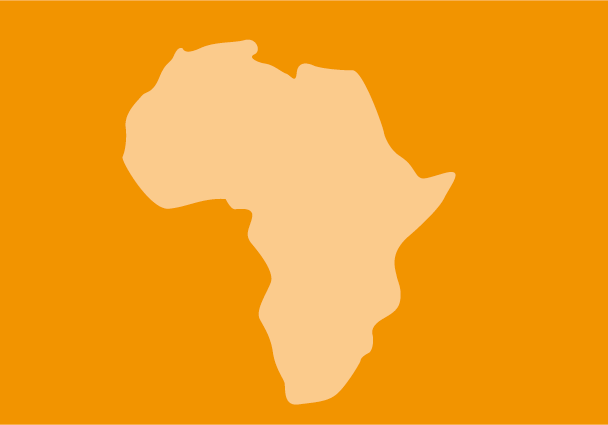
Aug 31, 2018 | Advocacy, Non-legal submissions
Today, the ICJ made a submission to the Committee on Economic, Social and Cultural Rights in advance of Committee’s examination of South Africa’s initial periodic report under the International Covenant on Economic, Social and Cultural Rights. South Africa ratified the Covenant in 2015.
When CESCR convenes to consider South Africa’s report on 2-3 October 2018, it will therefore be the first time that the Committee has the opportunity to review a report from South Africa on the implementation of its Covenant obligations.
In its submission, supplementing submissions made by a range of South African civil society organizations, the ICJ drew the Committee’s attention to:
a) South Africa’s incomplete discharge of its obligations in terms of the Covenant;
b) The South African Government’s need for guidance from the Committee on the discharge of its obligations in terms of the right to work;
c) The South African Government’s need for guidance from the Committee on the discharge of its obligations in terms of the right to an adequate standard of living;
d) The South African Government’s failure to report effectively and accurately on its efforts to realize the ESC rights of persons with disabilities;
e) The uncertain status of the South African Government’s commitment to the enactment of legislation to ensure the implementation of the Covenant;
f) The uncertain status of the South African Government’s intention to ratify the Optional Protocol to the Covenant; and
g) The uncertain status of the South African Government’s declaration with regard to the right to education.
The ICJ’s submission invites CESCR to make various specific recommendations to the Government of South Africa in its Concluding Observations on each of these issues. Broadly, the ICJ also invites CESCR to recommend to the Government of South Africa time-bound commitments to processes leading to:
1. The full domestication of Covenant in South African law;
2. A comprehensive review of South Africa’s domestic laws and policies on ESC rights to ensure that they are implemented consistently with South Africa’s obligations in terms of the Covenant; and
2. The ratification of Optional Protocol to the International Covenant on Economic, Social and Cultural Rights.
The ICJ’s submission also supports submissions by civil society organizations and the South African Human Rights Commission inviting CESCR to recommend that South Africa withdraw its declaration relating to its “immediate” obligations in terms of the Covenant right to education.
Finally, the ICJ considers it critical that the South African Government reflect on the ways in which the Covenant to increases, alters and nuances the nature and content of its human rights commitments and obligations in terms of the realization of economic, social and cultural rights.
This the ICJ submits is particularly crucial in regard to rights which are entrenched in the Covenant but not the South African Constitution such as the right to work (Articles 6-8) and the right an adequate standard of living (Article 11).
In undertaking this process, the ICJ submits that due regard should be had the standards set out in the Covenant as interpreted by the Committee in its general comments.
SouthAfrica-ICJSubmissionCESCR-Advocacy-Non-legal submission-2018-ENG (full text, PDF)









